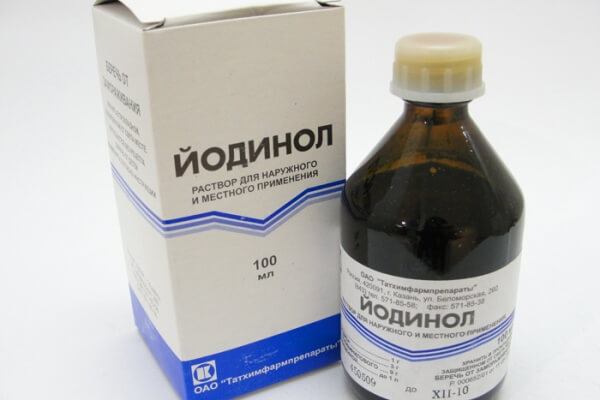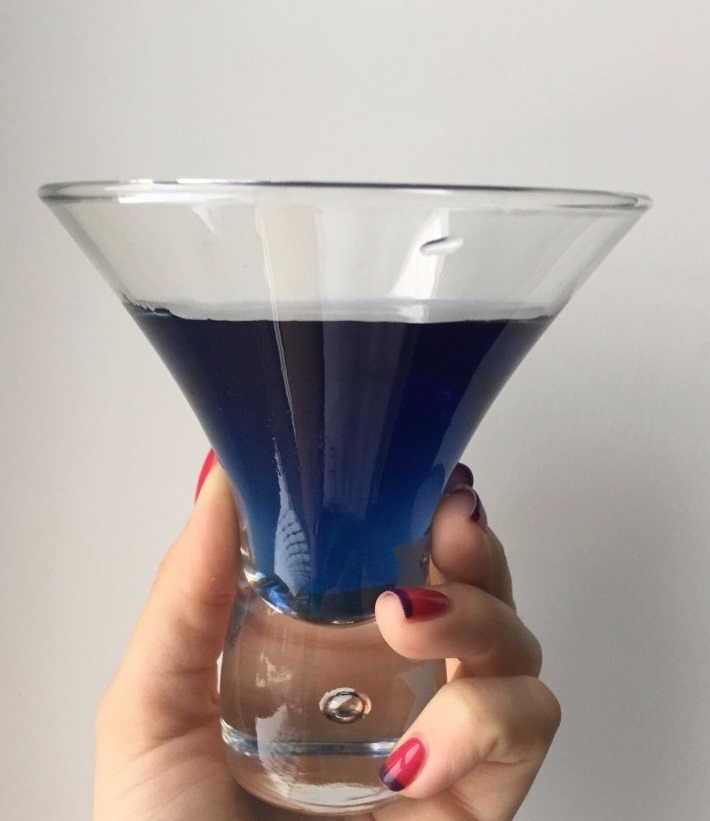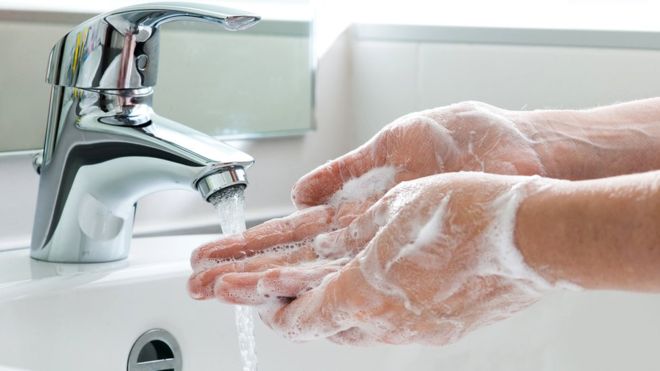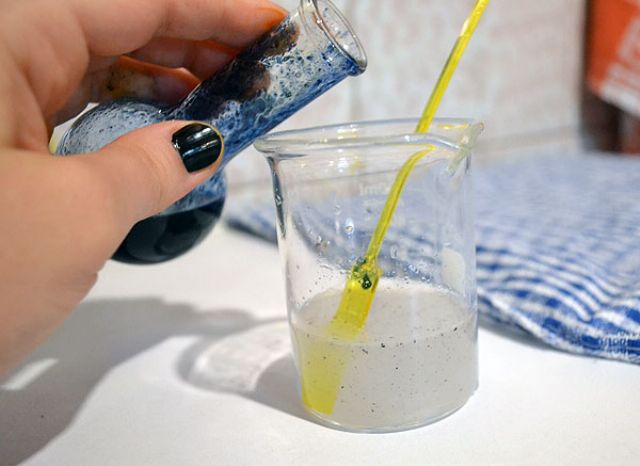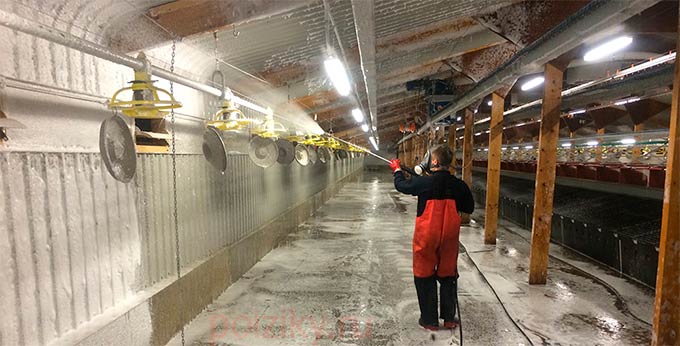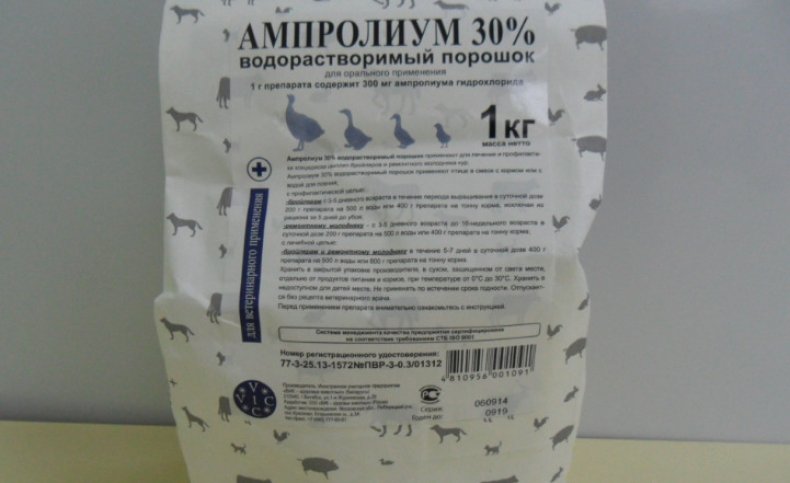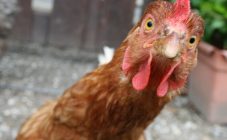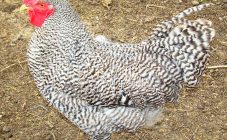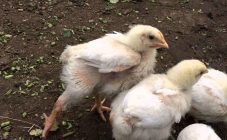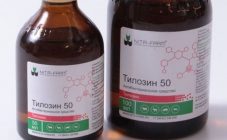Content:
Young birds often develop gastrointestinal problems. They arise due to the penetration of pathological microflora into the body, malnutrition or conditions of detention. Moreover, many of the intracellular parasites, for example, histomonads and coccidia, often lead to the death of chickens, ducklings and turkey poults. To suppress the pathological microflora in the body and specifically in the gastrointestinal tract and liver of young poultry, iodinol is used, which has another name - "blue iodine".
Iodinol for chickens is used for skin diseases, as it contains ordinary iodine, which has an antiseptic effect. It is also used to suppress many microorganisms that harm the animal. Blue iodine for chickens is well absorbed when it enters the gastrointestinal tract or when applied to the skin or mucous membranes of the beak. This remedy has established itself as an inexpensive and high-quality, highly effective and easy-to-use medicine that can be prepared at home to get rid of chickens from intracellular parasites and many other diseases.
Pharmacological action, composition, application
Iodinol is a dark blue liquid, for which, in fact, received the name "blue iodine". It is safe for animals as it does not contain toxins. Also, antibacterial substances, hormonal supplements are not added to it, after which it will be necessary to feed the birds with probiotics or vitamins for recovery. Manufacturers release it in the form of small bottles or plastic canisters. The characteristic packaging of a licensed veterinary product must contain the following information:
- Legal address and manufacturer's name with a certified trademark.
- The name of the drug and the full composition of its constituent substances.
- Batch number, production date, expiration date.
- Notes "Sterile" and "The product is intended for veterinary use."
It began to be used in the sixties of the twentieth century. It has established itself as a remedy for many diseases. In humans, iodinol was used to treat sore throats, bronchitis, cleansed and disinfected wounds, and used it for inflammation of the conjunctiva, liver or intestinal problems such as flatulence or diarrhea.
It includes:
- Purified distilled water, multi-compound vinyl alcohol.
- Crystalline iodine and potassium iodide.
The liquid has the smell of iodine, with mechanical action on the container, violent foam appears. If you mix the substance with water or saline, a bluish substance is formed. When released into an alkaline environment, it breaks down into its constituent parts.
The main active ingredient of iodinol for broiler chickens is crystalline iodine, which has an antibacterial effect. It is hypoallergenic and does not irritate the mucous membranes of the mouth and larynx in poultry.When using blue iodine for chickens, health deterioration was not recorded even in very sick animals.
The main advantages of iodinol include:
- Safety for both the owner and the animals. This is ensured by the absence of toxic, hormonal and antibacterial substances.
- Blue iodine can be used for a large number of diseases, from cleaning and disinfecting small wounds and abrasions in chickens to ingestion. For poultry, iodinol is prescribed internally in the presence of intracellular parasites - coccidia or other infectious diseases.
- After application, it will not be necessary to carry out a rehabilitation course and the quality of the products does not decrease. So the quality of meat does not deteriorate in broilers, and in laying hens - the number of eggs. The substance is not deposited in the cells and tissues of a sick animal, so you can eat eggs for food during the treatment of layers.
- After application to the skin or mucous membranes, the solution disintegrates over time, releasing crystalline iodine, which penetrates deep into the cells, which helps to cope with inflammation.
- The polyvinyl alcohol in the composition reduces the rate of absorption of crystallized iodine into the body. Because of this, irritation of the skin and mucous membranes is much weaker.
- It affects both gram-positive and gram-negative microflora and does not cause resistance in them, which means that the drug will be effective throughout the treatment.
Precautions when working with the drug
When working with iodinol, you should adhere to the following precautions:
- If the product gets on the mucous membranes of a person or pets, it can lead to complications. This can cause irritation. If iodinol gets into your eyes, you should rinse them with clean water and consult a doctor.
- When working with the drug, it is prohibited to eat, smoke, take alcoholic beverages or drink water, communicate by phone. This can lead to the contact of concentrated iodinol on the mucous membranes of the oral cavity and burns. After completing the application, you will need to wash your hands as thoroughly as possible with soap.
- After opening, it is forbidden to store it for more than 2-3 days. Therefore, the unused solution will need to be disposed of.
- It is strictly forbidden to use in conjunction with other anti-inflammatory substances.
- At home, it is required to store the drug at a temperature of +3 to +30 degrees away from children and animals.
- At too high a temperature (more than forty degrees) it quickly decomposes, therefore it is forbidden to store it under such conditions.
- Expired iodinol must be disposed of in accordance with all state regulations for the destruction of pharmacological substances.
Self-made iodinol recipes
When purchasing iodinol for chickens, it is recommended to purchase a product marked “For veterinary use”. If this is not available, you can cook it yourself. There are two cooking methods. The first method was invented by the Soviet scientist V.O. Mohnach and is more popular.
- You will need 50 ml of water at room temperature, pour about 10 g of starch into it. The substance will need to be mixed until the mass is completely homogeneous, then add a teaspoon of sugar and a pinch of citric acid. Stir until the substance is homogeneous. After that, it must be boiled over low heat, add 150 ml of water there. The finished substance will be very similar to jelly. Cool, and then pour in a teaspoon of iodine, previously purchased at the pharmacy. After thorough mixing, the substance will turn blue.
In this formulation, sucrose and citric acid are required to increase the shelf life of the drug.These two substances have the properties of preservatives, which will provide up to six months of storage without loss of properties. But only without the ingress of oxygen, an oxidation reaction will occur in an open container and the substance will lose its pharmacological properties.
- When cooking according to the second method, a quarter-liter container is required. 50 ml of pure water at room temperature is poured into it. Next, you need to pour 10 g of potato starch and a spoonful of potassium iodide there. Then gradually pour 200 ml of hot water, stirring occasionally. The shelf life of iodinol prepared by this method is no more than three weeks. Store in a cool place or refrigerator.
Instructions for the use of iodinol for chickens
The drug is used to treat dermatitis, cleanse wounds and abrasions in chickens, in the complex treatment of infectious diseases and for their prevention, as a general strengthening drug, in the treatment of diseases of the respiratory tract, especially laryngotracheitis.
The pathogen can continue to inhabit the body of a recovered bird, which will lead to a chronic course of the disease for all inhabitants of the chicken coop.
When using iodinol, the estimated dose of the drug depends on two factors - the age of the bird and what disease it contracted.
- When treating diseases of the outer skin caused by harmful microorganisms, iodinol for chickens is used in undiluted form to disinfect and heal mechanical damage. It is applied to a cotton swab or turunda and the damaged areas of the poultry skin are carefully treated.
- In coccidiosis, iodinol is used internally in broiler chickens in the same proportions as in pullorosis. For meat types, it is used internally. In this case, it is worth following the instructions - young animals up to a month old are given half a milligram of iodinol three times a day, adults and broilers one milligram each.
- Iodinol can be used to prevent and increase the general immunity of poultry. To do this, give from a third to half a gram of the drug once a day for two weeks. Iodinol for broilers is used in increased quantities. After the course of admission, a week break passes and then you can repeat it. This is especially applicable during the autumn-winter epidemics associated with vitamin deficiency. Iodine for broilers, dosage with water does not differ from the proportions of adult birds.
- If birds have pullorosis, they will also be prescribed iodinol, how to give the hens the medicine should be checked with the doctor. Usually, in this case, the treatment is carried out with the drug diluted in water in proportions of 1:05. Chickens are given 0.5 ml of the drug 3 times a day. Adult chickens and broilers - 1 ml. with the same frequency. It takes up to ten days to continue treatment. After the pathogen reappears - about a week later - you will need to repeat the course of treatment. For laying hens, iodine is added to the water.
If the pectoral muscles have undergone changes, there are hemorrhages or peritonitis, the carcass must be burned to prevent disease of wild birds.
Tips
To disinfect the chicken coop, you can use a checker-form agent. Checkers contain iodine in crystallized form and additional substances. They come in tablet or powder form. When cleaning a chicken coop, it is advisable to use this agent to remove harmful organisms from the litter. Iodine vapors can penetrate deep into cracks in floors and perches and clean them deeply.
Experienced poultry farmers recommend using an iodized checker in the following situations:
- If you urgently need to cleanse the premises from infections, for the prevention of infectious diseases.
- If it is necessary to get rid of diseases of the respiratory tract of poultry, laryngitis, bronchitis and pneumonia, leading to a decrease in productivity and growth rates, in addition to the use of medications, it is possible to use iodinol in the form of checkers.
For a room with an area of 0.5 sq. km, you will need about 6 tablets or 50 grams of powder. When ignited, iodine vapors will start to be released, which have a disinfecting ability.
Experienced breeders recommend iodinol as a universal inexpensive remedy, with the purchase of which usually there are no problems, among other things, bacteria and viruses do not develop resistance from iodinol, so you can use it an unlimited number of times.
